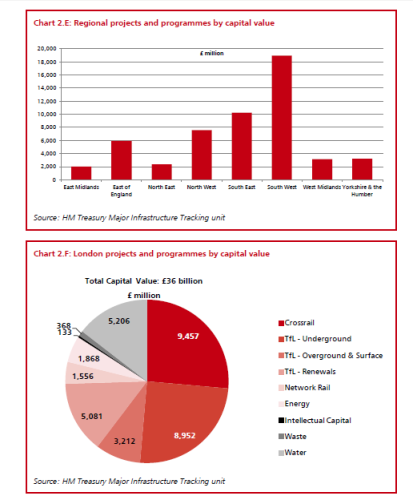
Boris Johnson’s latest gambit on the road to Number 10, if the London Evening Standard is to be believed, is to set up and manage a new Whitehall super-department: a Ministry for Infrastructure.
The idea is to concentrate responsibility for transport, business, and housing in the hands of a single member of the cabinet. Perhaps Boris is concerned he’ll have a wait on his hands post-2015 before one of the Tory backbenchers plunges the knife in the Prime Minister’s back.
But let’s pretend for a moment that the proposal isn’t merely a vehicle to smuggle Boris into the Cabinet. If properly thought through, would an Infrastructure Minister be a good idea? 
There’s no denying that the UK’s infrastructure is in a sickly state. We can see symptoms of its malaise all around. Inadequate flood defences compelled the government to spend £540million on rebuilding devastated local communities following the storms earlier this year. A sclerotic approach to housebuilding over the last few decades has led to a shortfall that can now only be made up by constructing 300,000 new homes a year, according to experts. We have a rail network described as “Victorian” by Network Rail chief executive David Higgins, and a hub airport at Heathrow running at 98% capacity.
But the need for long-term investment to revive our ailing infrastructure clashes with the short-term nature of the political cycle. Furthermore, at times of fiscal retrenchment, cash-intensive infrastructure projects are typically the first to be sacrificed on the altar of austerity.
This would seem to rule out the idea of an Infrastructure Minister being a ‘good thing’, as surely the position would only serve to further politicise the allocation of investments and increase the number of half-baked projects chucked on the rubbish heap after each change of government.
However, we need to recognise that the choice of where to invest, and in what sort of infrastructure, is as political a choice as any. You only need to follow the battle over HS2 to get a sense of just how heated the debate over these types of projects can be.
There’s a strong suspicion that the majority of public investment under the current government is concentrated in the affluent south at the expense of the north. Yes, the blueprints for HS2 envision the tracks heading up to Leeds, but the project is still seen as a ruse to speed up access to London, rather than build capacity and stimulate enterprise in other parts of the country.
The government’s own National Infrastructure Plan reveals that the capital value of programmes and projects already in the pipeline for the south and London approximate £64 billion, compared with £24 billion for the rest of England. A number of particularly large projects may account for some of this regional variation (such as Hinkley Point in the South West), but the divvying up of these investments remains essentially a political decision.
An Infrastructure Minister would ensure the public knew who was accountable for the decisions on which projects received government funding, and provide a point of access for people to petition the government for investment in their local area.
A One Nation Labour Party should recognise the potential in infrastructure investment to function as an engine for social justice, bringing investment and prosperity to regions of the country gutted by Tory governments both in generations past and today. The creation of an Infrastructure Minister would show Labour is serious about opening up decision-making and bringing transparency to the allocation of investment, and serious about righting the wrongs of previous governments’ infrastructure strategies.





More from LabourList
‘Security in the 21st century means more than just defence’
‘Better the devil you know’: what Gorton and Denton voters say about by-election
‘Unity or division’: Starmer’s message to voters in Gorton and Denton